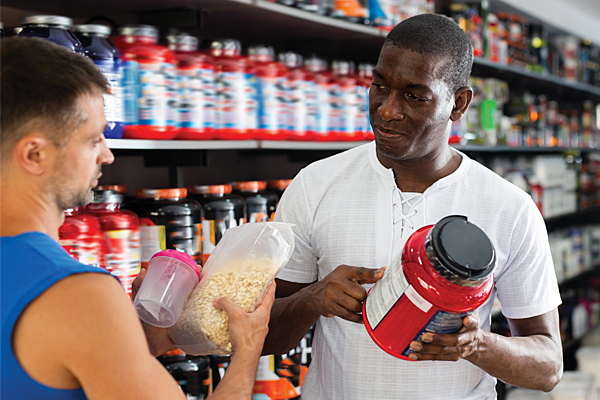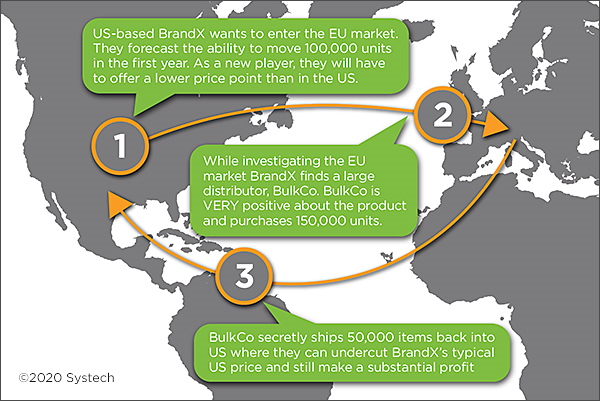
The numbers are clear. Nutraceuticals is already a huge market and expanding by the day. New products, new manufacturers, new sub-segments, plus established brands entering this space, all looking to get the attention of the consumer. Exponential market growth, combined with the huge growth in online marketplaces, makes nutraceuticals perfectly positioned for huge leaps in counterfeiting.
Nutraceutical brands need to proactively protect their products from an inevitable rise in counterfeits to come. Half-billion-dollar industries DO NOT escape supply chain threats. Unfortunately, the additive layers of protection available to brands are also available to counterfeiters. The market for anti-counterfeit remedies is growing, but counterfeiting is rising in every consumer space. It is crucial to add a digital layer of protection to provide the full range of protection and possibilities for nutraceutical products. Digital product authentication solutions will prove to be the necessary measure required in the industry.
Highly profitable target for counterfeiters
This market space is incredibly attractive to supply chain criminals. Why? First and foremost is the obvious… profit. When you have a successful and growing industry like nutraceuticals, everyone wants a piece of the action.
Counterfeit operations are benefiting from the same thing that is advancing legitimate business—improvements in technology. 3D printing is a game changer, for example, enabling near-exact replication of original items. The high quality of printing technology in general enables counterfeiters to create deceiving imitations of original product labeling and packaging. E-commerce and the proliferation of online stores has created an easy, accessible global marketplace for counterfeit and diverted nutraceuticals.
Between the threat of counterfeit goods and rampant diversion, brands are being challenged to develop strategies that safeguard customers, protect revenue and ensure continued brand loyalty. Efforts around standardized serialization in several industries have highlighted the need to add elements to packaging to help thwart counterfeiting.
Supply chain threats 101: Global diversion
When goods do not follow the expected supply chain route, authenticity and quality can be compromised and brand owners lose sight of business operations and performance. Diversion, also known as gray market or parallel import, occurs when products are sold in unauthorized places without the consent of the brand owner. Price is largely the culprit to motivate deceitful supply chain actors to illicitly divert products from the intended market and introduce them into another.
The opportunity for diverted goods largely springs from “tiered pricing,” in which one product may be sold at different price levels in different markets or circumstances. Accelerated globalization of business has created more opportunities for diversion today. Different markets require dynamic pricing and open more opportunities for the fraudulent resale of product. As a global industry, many nutraceutical brands have international distribution chains and regional pricing—making them extremely susceptible to the ills of diversion.


The opportunity for diversion often springs from tiered pricing, in which one product may be sold at different price levels in different markets.

When fake, poorly handled or ineffective versions of nutraceuticals find their way to consumers, the results can range from disappointing to deadly. Fake product is often cheaply manufactured in non-hygienic factories and contaminated by bacteria, carcinogens and toxins. Diverted products can be left in hot warehouses and relabeled to cover sell-by dates, all to fool customers.
Stop the problems before they start
Nutraceutical brands need to address these issues head on. Take advantage of the fact that we’ve entered the era of IoT in a world of connected everything—from smartphones and home appliances to lights, doors and more. There is now an expectation that people can engage with the products and items they encounter every day. In nutraceuticals, this applies perfectly. Individuals purchasing nutraceutical products will demand easy access to product and ingredient information, as well as have interest in engaging with health brands on product usage and satisfaction.
Because of this reality, brand owners are exploring how to “connect” their products and packaging to the data-driven world. Many available approaches rely on internet addresses or QR barcodes printed on a product that, when scanned, redirect the user to a specific website. This is “generic” connectivity. It is very limited and does not allow for a high degree of engagement or richness of experience.
Imagine establishing a unique identification for each package coming off the line. You would then be able to immediately authenticate that product in the marketplace. What’s more, metadata about that specific product could be associated with its unique identifier. This would enable the user to discover robust details about that health product that is not physically able to fit on the package’s printed label. Finally, the customer could communicate back to the brand with information about their experience and share their own individual comments and reviews. Thus, uniqueness enables a data-driven, enriched customer experience in addition to providing a strong anti-counterfeit solution.
Intelligent connected packaging
Solutions like the Systech Brand Protection Suite™ leverage a ubiquitous barcode—like a UPC or QR code—that already exists on product packaging. It connects the physical package to the digital world by deriving a unique digital identifier, or e-Fingerprint®, for each item that is impossible to duplicate. A simple smartphone app can be used to authenticate the item and provide the connection necessary for enriched consumer engagement with the product and brand.
Nutraceutical brand owners can now analyze this extensive data. Not only do they know the specific product in question, but they gain valuable insight into the customer experience with that product—at crowdsourcing scale! The entire supply and distribution chain journey can now be tracked, so the brand can investigate bad experiences to see if certain mid-tier distributors are consistently having issues. The company can monitor certain retailers and geographies where there is a higher or lower rate of product authenticating. Beyond item protection, the new data-driven opportunities are endless.
This digital connectivity, along with layers of physical product protection, will close the loop for the nutraceutical industry to be truly ready. It’s time to address the supply chain challenges that come with success.
Take a proactive approach. Protect your nutraceutical products. Download this white paper to learn more: Health Check – Is the Nutraceutical Industry Ready for the Fakes?

Steve Tallant is senior director, market development, at Systech International
©
SecuringIndustry.com
 | back to top
| back to top






